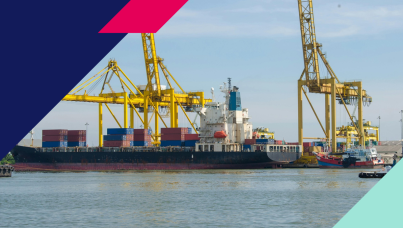Majority (55%) of Canadian Parents Agree Their Child Would Not be Able to Attend Post-Secondary Education Without Government Support
Despite most (93%) parents `agreeing' (66% strongly/27% somewhat) that post-secondary education is important for their child's success, many parents appear to be leaving money on the table, displaying low levels of awareness about key government programs designed to help them save for their child's future, and to assist students wishing to attend a post-secondary institution. But to begin, a few facts revealed by the poll to frame the discussion:
- Eight in ten (83%) parents expect that their child will attend post-secondary studies.
- Less than half (46%) of parents are currently saving for their child's post-secondary education.
- Two in ten (22%) say they haven't started yet but are planning to save for their child's post-secondary education.
- Just half (50%) express confidence that they will meet their child's post-secondary education financial needs.
- Three in ten (29%) will make their child responsible to pay their own post-secondary education costs.
- Six in ten (59%) say they may need to seek government assistance programs to help pay for their child's post-secondary education.
- Just 36% agree that post-secondary education in Canada is affordable for their child.
RESPs
Seven in ten (68%) parents say they're familiar (29% very/40% somewhat) with RESPs - Registered Education Savings Plan, while one in three (32%) are not (16% not at all/16% not very). Among those currently saving for their child's education, seven in ten (70%) are using an RESP, while three in ten (30%) are not. Among those who are not currently saving using this method, one quarter (26%) intend to use it, while one in three (33%) do not, and four in ten (42%) don't know. This totals 50% of parents, overall, who are using an RESP to save for their child's education, or intend to use one. The remainder or parents are not or are unsure.
CESGs
Three in ten (29%) parents say they're familiar (8% very/22% somewhat) with CESGs - Canada Education Savings Grant, while most (71%) are not (41% not at all/22% not very). Among those who are currently saving for their child's education, just two in ten (21%) are utilizing a CESG while eight in ten (79%) are not. Among those who are not currently saving using this method, just 12% intend to use it, while three in ten (31%) do not and most (56%) are unsure, likely a function of being unaware of them or the details. This totals just 21% of parents, overall, who are using a CESG to save for their child's education, or intent to use one. The remainder are either not intending to use one, or aren't sure whether they will.
CLBs
Only two in ten (17%) parents say they're familiar (4% extremely/13% somewhat) with the CLB - Canada Learning Bond, while most (83%) are not familiar (53% not at all/30% not very) with it. However, since not all survey respondents would be eligible for the CLB, the lower level of awareness is understandable. Among those who are currently saving for their child's education, 7% are using a CLB to save. Among those not currently saving, 8% expect to use one, while one in three (35%) do not and most (58%) are unsure, again likely due to low levels of awareness around eligibility criteria for the CLB.
Parents were given a series of statements about how these programs work - some true some false - in order to gauge their level of knowledge regarding these various programs. This is how they performed, revealing that significant gaps exist in their knowledge of these programs:
- Two in three (66%) know it's true that the basic CESG is a payment of 20% on RESP contributions made for their child, up until the end of the calendar year in which their child turns 17. One in three (34%) erroneously believe this is false.
- Two in three (63%) believe that every Canadian child, up to the age of 17, is eligible for the Canada Learning Bond as long as a parent applies for it, which is actually false. Just 37% correctly identified this as being false.
- One half (53%) correctly believe that they need to open an RESP to become eligible for a Canada Learning Bond or Canada Education Savings Grant. However, nearly half (47%) incorrectly identified this as false.
- Most (63%) correctly believe that the amount of government support they receive for post-secondary savings for their child is directly related to their income level, but four in ten (37%) erroneously thought this was false.
- Seven in ten (70%) correctly believe that every Canadian child is eligible for some type of assistance through post-secondary education savings programs, while three in ten (30%) do not believe this is the case.
- A majority (58%) knows it's false to say that Canadians can only open an RESP for their own children, but four in ten (42%) erroneously think this is true.
Perhaps as a result of their relatively low level of awareness of these programs and the apparent confusion of many, fewer than half (47%) `agree' (8% strongly/38% somewhat) that the government is helping them save for their child's education future. A majority `disagrees' (25% strongly/29% somewhat) that the government is providing this kind of help.
These are some of the findings of an Ipsos Reid poll conducted between November 17 and 22, 2011, on behalf of ABC Life Literacy Canada. For this survey, a sample of 1,002 Canadian parents between the ages of 18 and 55 from Ipsos' Canadian online panel was interviewed online. Weighting was then employed to balance demographics and political composition to ensure that the sample's composition reflects that of the adult population according to Census data and to provide results intended to approximate the sample universe. A survey with an unweighted probability sample of this size and a 100% response rate would have an estimated margin of error of +/- 3.1 percentage points, 19 times out of 20, of what the results would have been had the entire population of parents in Canada been polled. All sample surveys and polls may be subject to other sources of error, including, but not limited to coverage error, and measurement error.
For more information on this news release, please contact:
Sean Simpson
Associate Vice President
Ipsos Reid
Public Affairs
416.572.4474
[email protected]
About Ipsos Reid
Ipsos Reid is Canada's market intelligence leader, the country's leading provider of public opinion research, and research partner for loyalty and forecasting and modelling insights. With operations in eight cities, Ipsos Reid employs more than 600 research professionals and support staff in Canada. The company has the biggest network of telephone call centres in the country, as well as the largest pre-recruited household and online panels. Ipsos Reid's marketing research and public affairs practices offer the premier suite of research vehicles in Canada, all of which provide clients with actionable and relevant information. Staffed with seasoned research consultants with extensive industry-specific backgrounds, Ipsos Reid offers syndicated information or custom solutions across key sectors of the Canadian economy, including consumer packaged goods, financial services, automotive, retail, and technology & telecommunications. Ipsos Reid is an Ipsos company, a leading global survey-based market research group.
To learn more, please visit www.ipsos.ca.
About Ipsos
Ipsos is an independent market research company controlled and managed by research professionals. Founded in France in 1975, Ipsos has grown into a worldwide research group with a strong presence in all key markets. In October 2011 Ipsos completed the acquisition of Synovate. The combination forms the world's third largest market research company.
With offices in 84 countries, Ipsos delivers insightful expertise across six research specializations: advertising, customer loyalty, marketing, media, public affairs research, and survey management.
Ipsos researchers assess market potential and interpret market trends. They develop and build brands. They help clients build long-term relationships with their customers. They test advertising and study audience responses to various media and they measure public opinion around the globe.
Ipsos has been listed on the Paris Stock Exchange since 1999 and generated global revenues of e1,363 billion (1.897 billion USD) in 2011.
Visit www.ipsos-na.com to learn more about Ipsos' offerings and capabilities.



